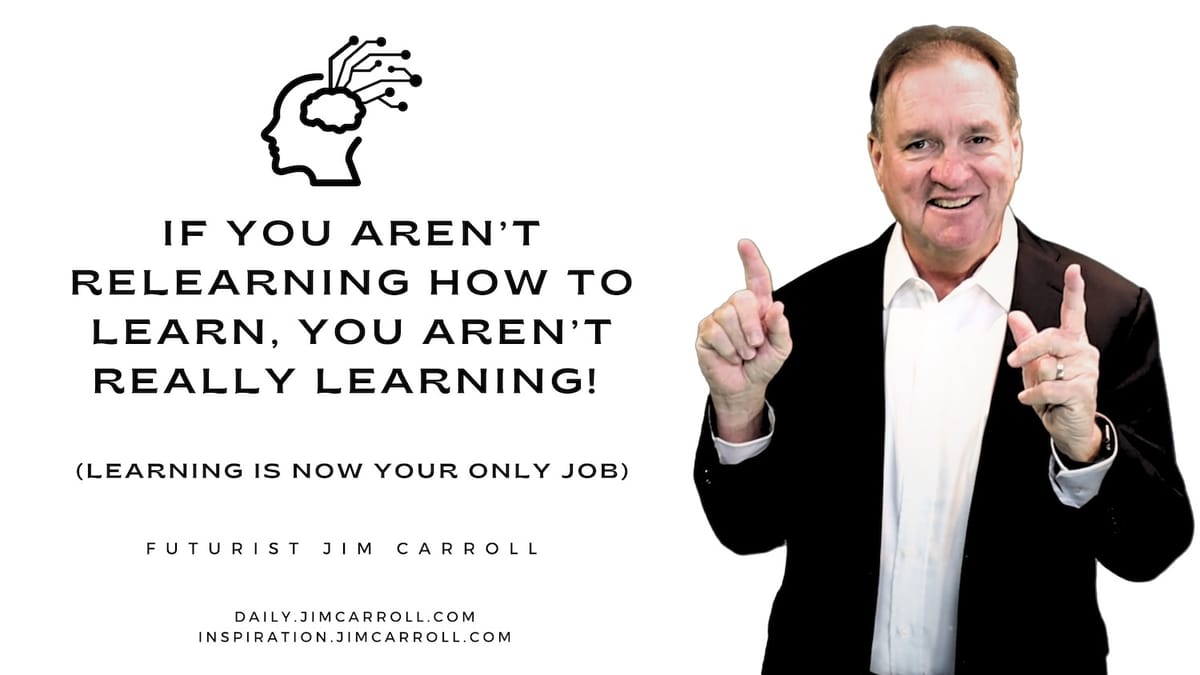"If you aren’t relearning how to learn, you aren’t really learning!" - Futurist Jim Carroll
Let's go back for a moment to item #3 on my list of '25 Strategies for 2025" - which was to be relentless in knowledge discovery. As I wrote, we are seeing massive growth in the generation of information.
- the total amount of digital data created worldwide doubled approximately every two years in the 2010s and early 2020s
- scientific research publications have been growing at a rate of about 8-9% per year, doubling roughly every 9 years
- in emerging technology fields like machine learning and genomics, the volume of research papers is doubling approximately every 2-3 years
- in many scientific fields, about half of what we know today was discovered in the last 15-20 years
- the average half-life of professional skills has dropped from about 10-15 years to 5 years, meaning skills learned today may be only half as valuable in 5 years
One of our key goals every day, as we use search engines, is to learn how to turn this vast trove of information into actual knowledge. Without that, this is just a lot of information.
Most of us turn to Google to do that - it's still the most popular search engine out there. And yet, many people (or most people?) are very frustrated, as the typical search results page is full of unwanted information. One fellow put it this way, outlining how Google has changed over time - a typical search results page is now just full of sponsored results, advertising links, information summaries, and more. It can often take a while for you to make your way through all of it to find the information of value that you are looking for.
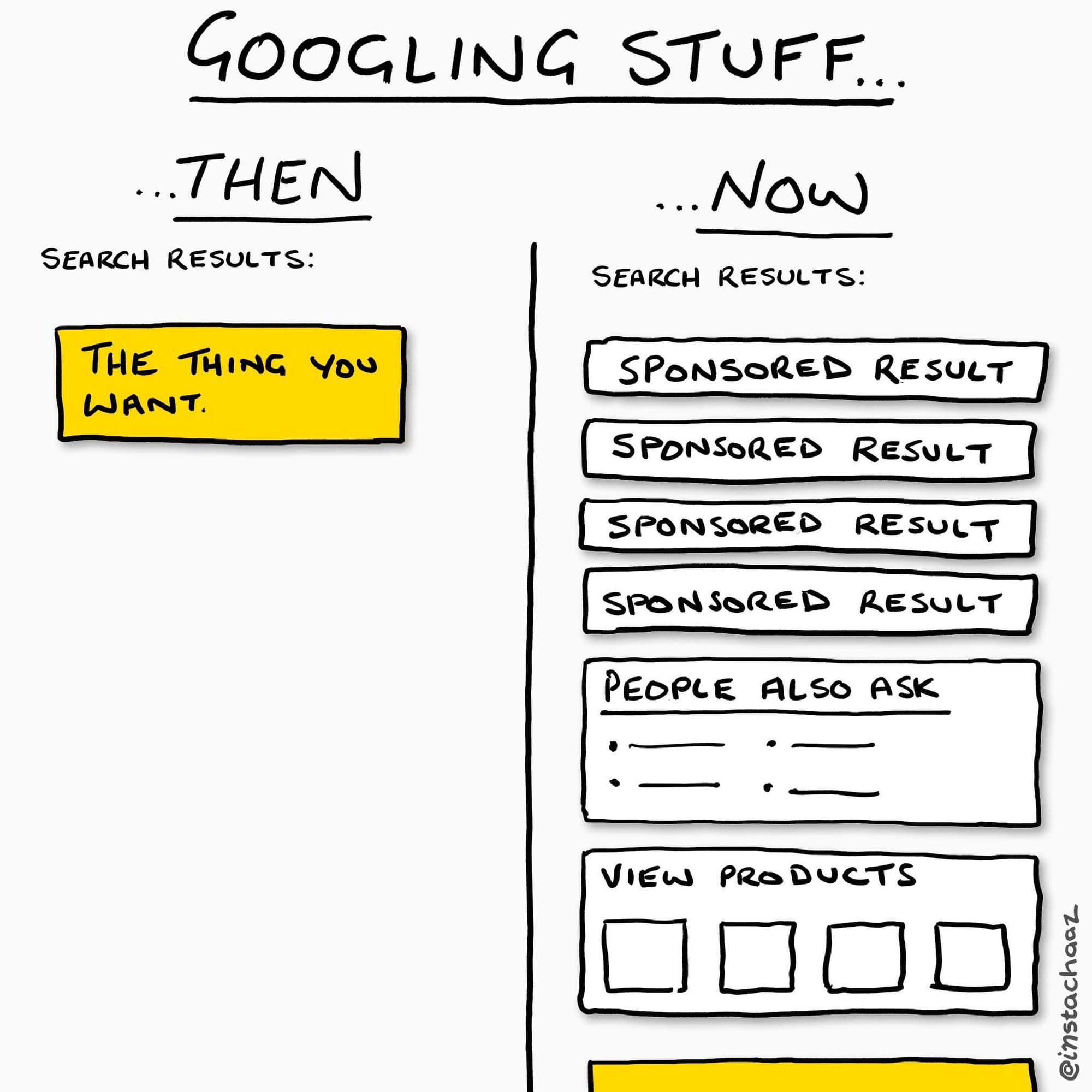
This trend started years ago, with some people outlining just how much 'junk' appears on a typical Google search page.
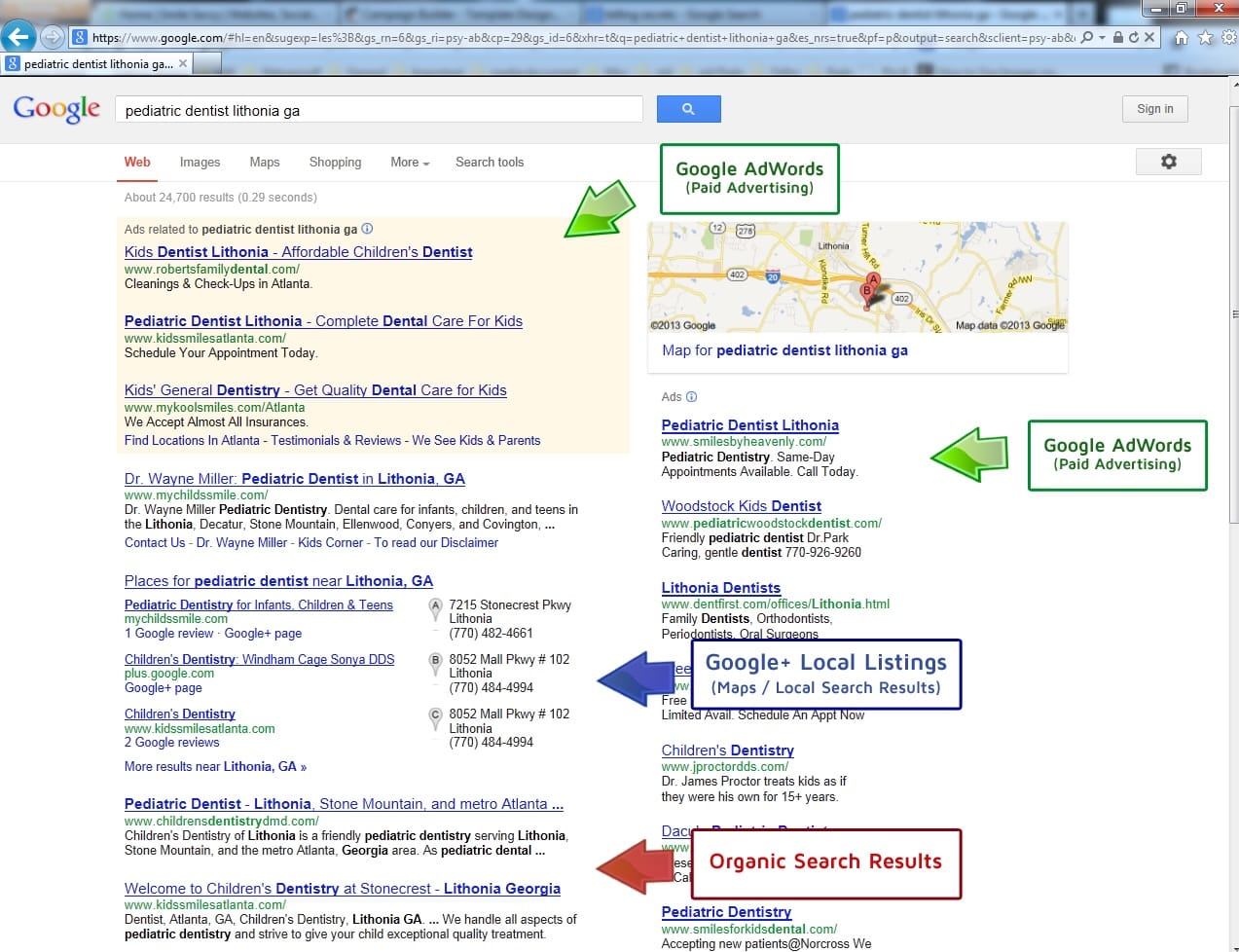
Enter Kagi - a paid search engine. I was drawn to it after a recent post in which the founder was interviewed. He was explaining in eloquent detail the problem with Google, Bing, and the other main search engines - the fact that the search results page is just too full of clutter.
I was intrigued and decided to give it a try. I've got an event coming at up the end of the month for the National Association of Landscape Professionals and decided to search for future trends in that industry using Kagi. What I got back for a basic search was a nice, simple Web page summary without the clutter.
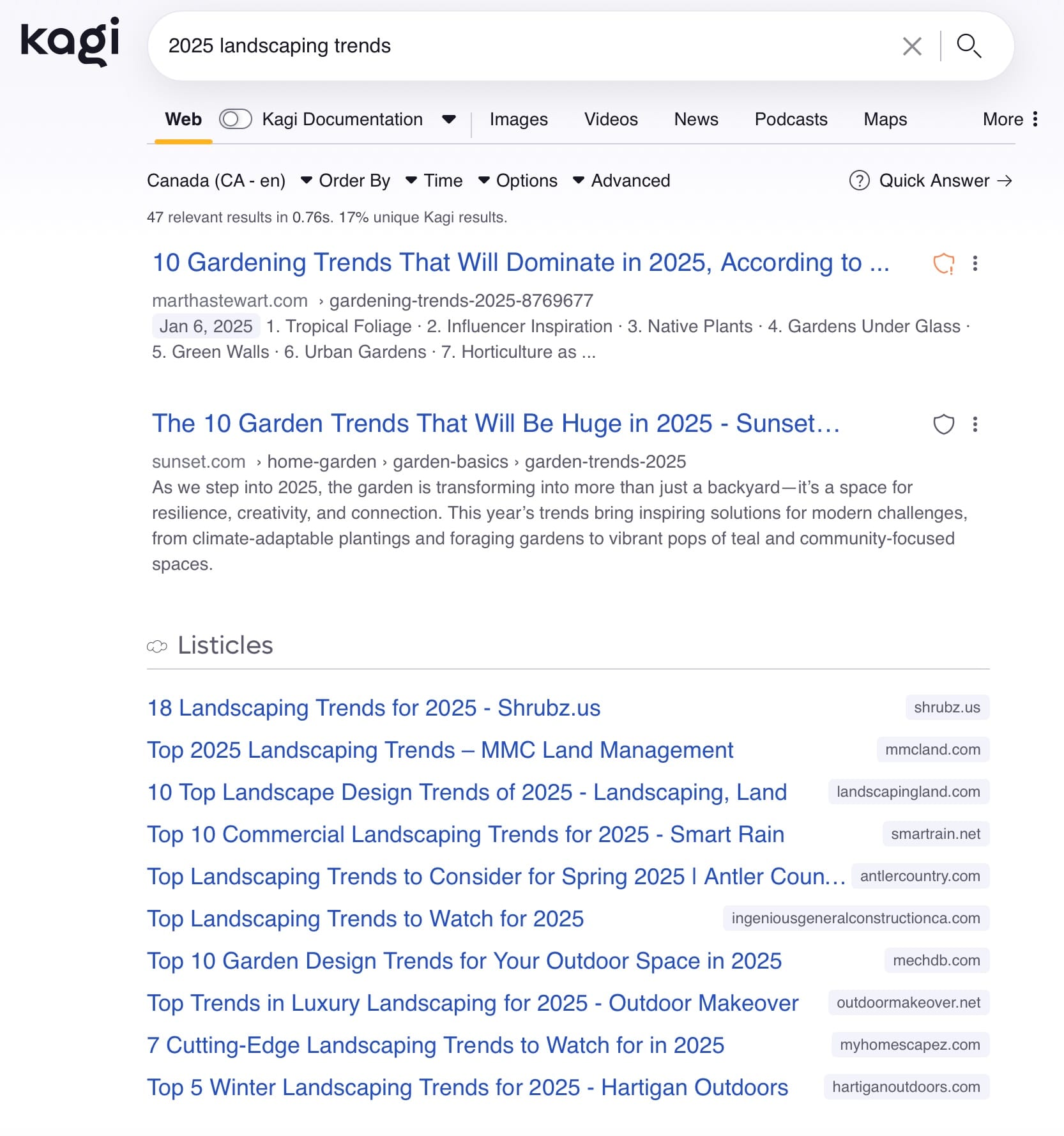
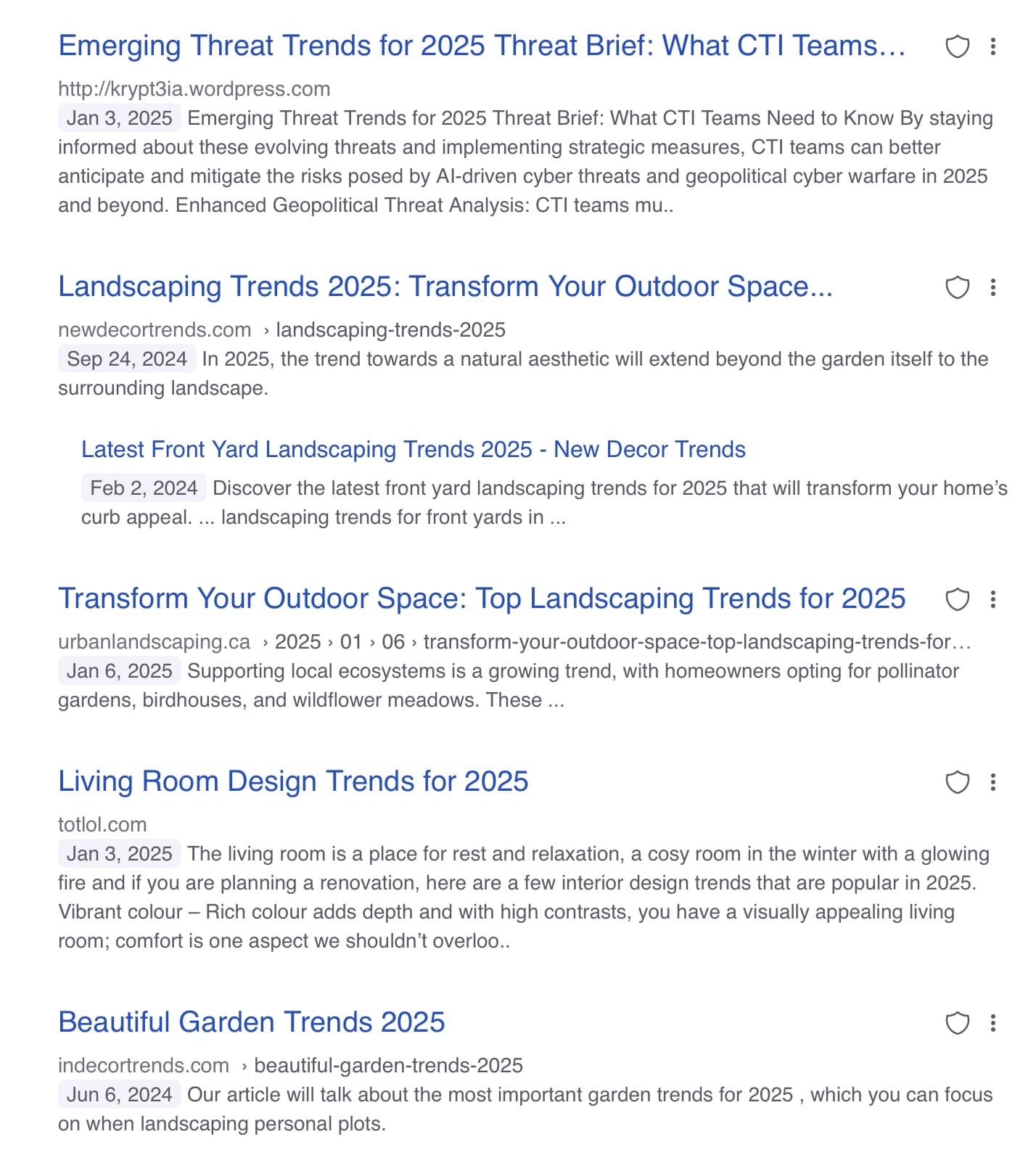
This immediately caught my attention, because it got right to a wonderful set of results - straightforward and to the point. But a couple of other features were evident and stood out.
First, I noticed that each result had an option - "Summarize page"
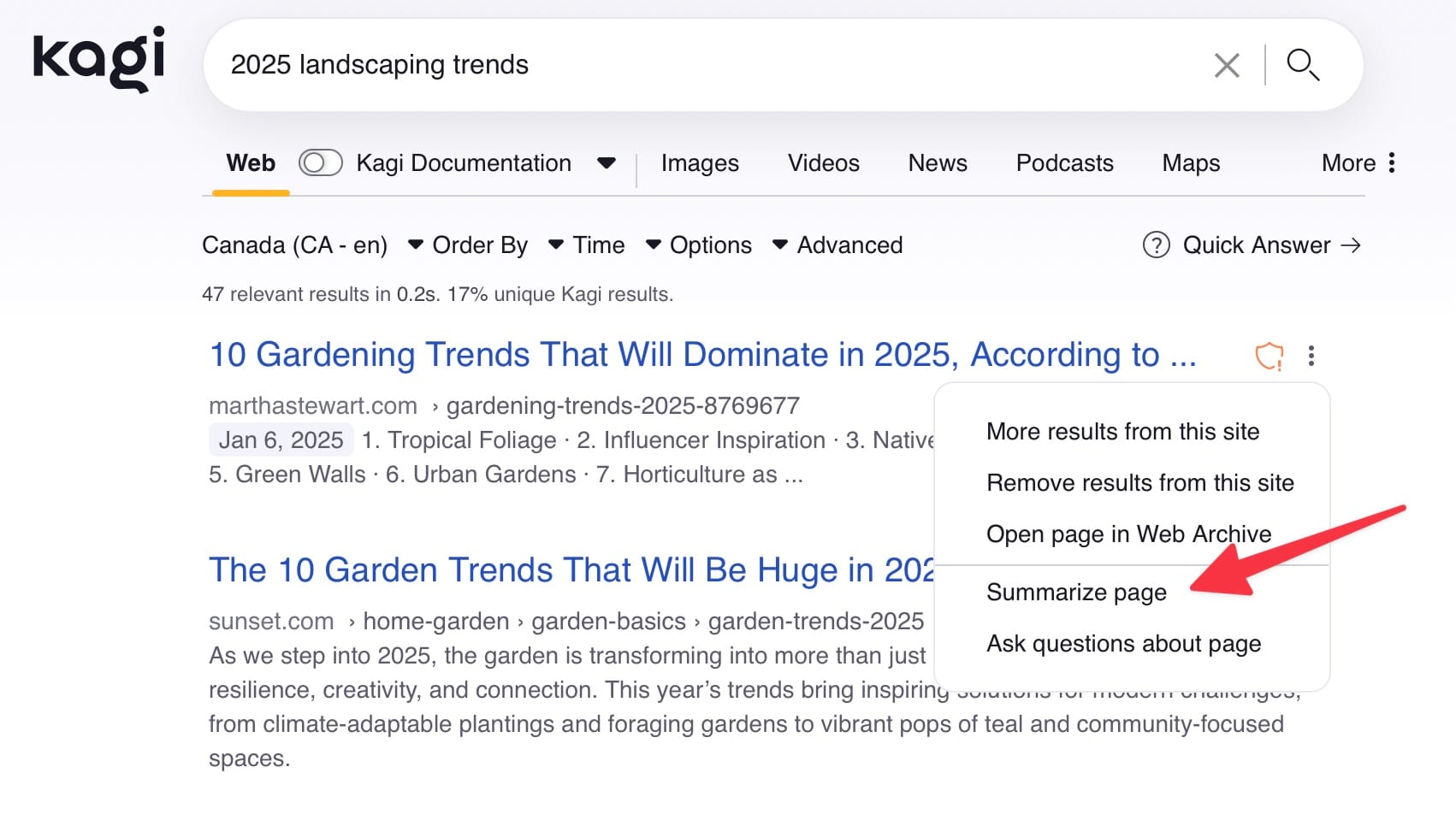
This led to a summary that was quite useful - I could 'browse' the information on the page without actually visiting the page.
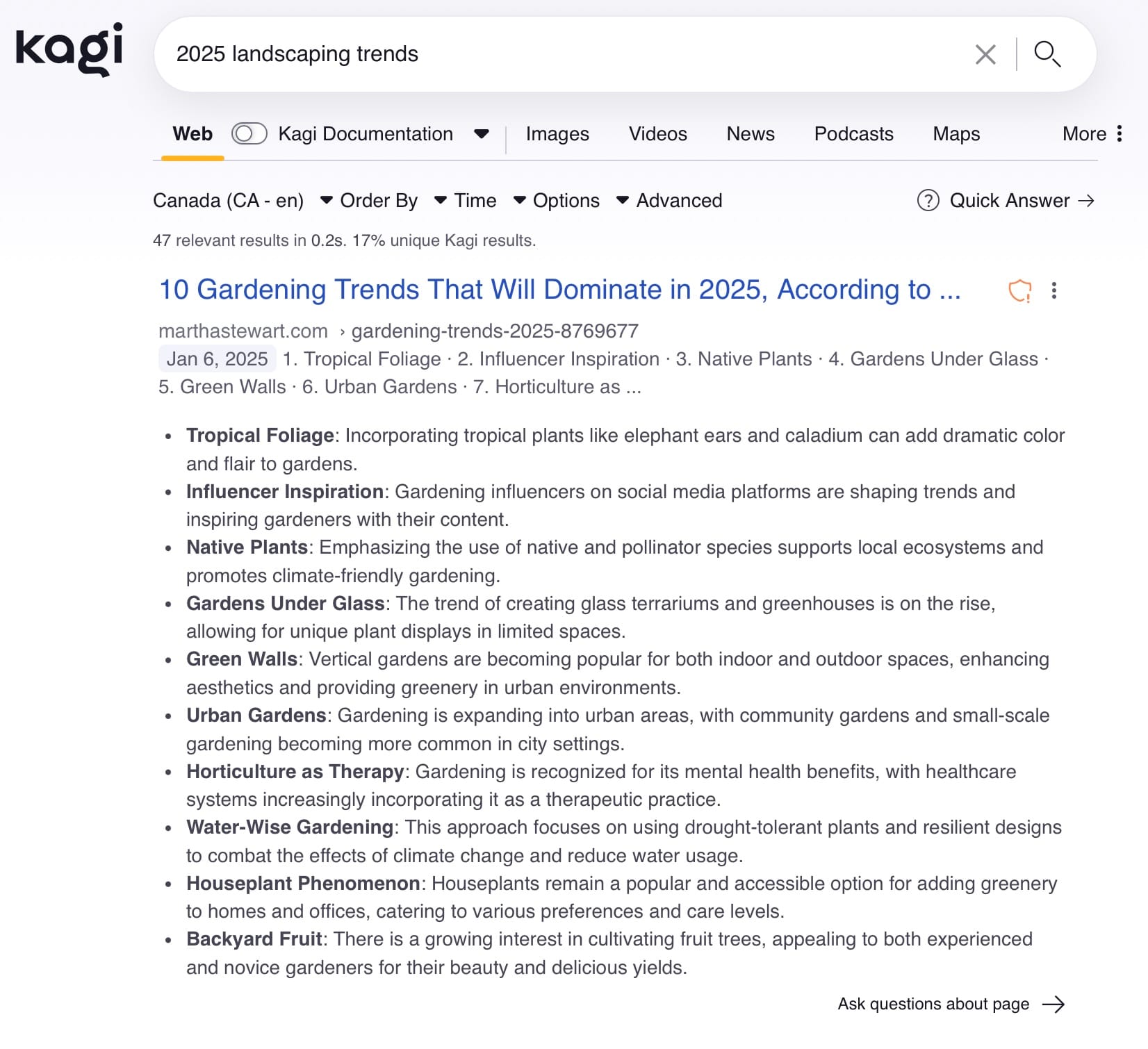
Not only that, but the 'Quick Answer' link at the top of the page drew my attention.
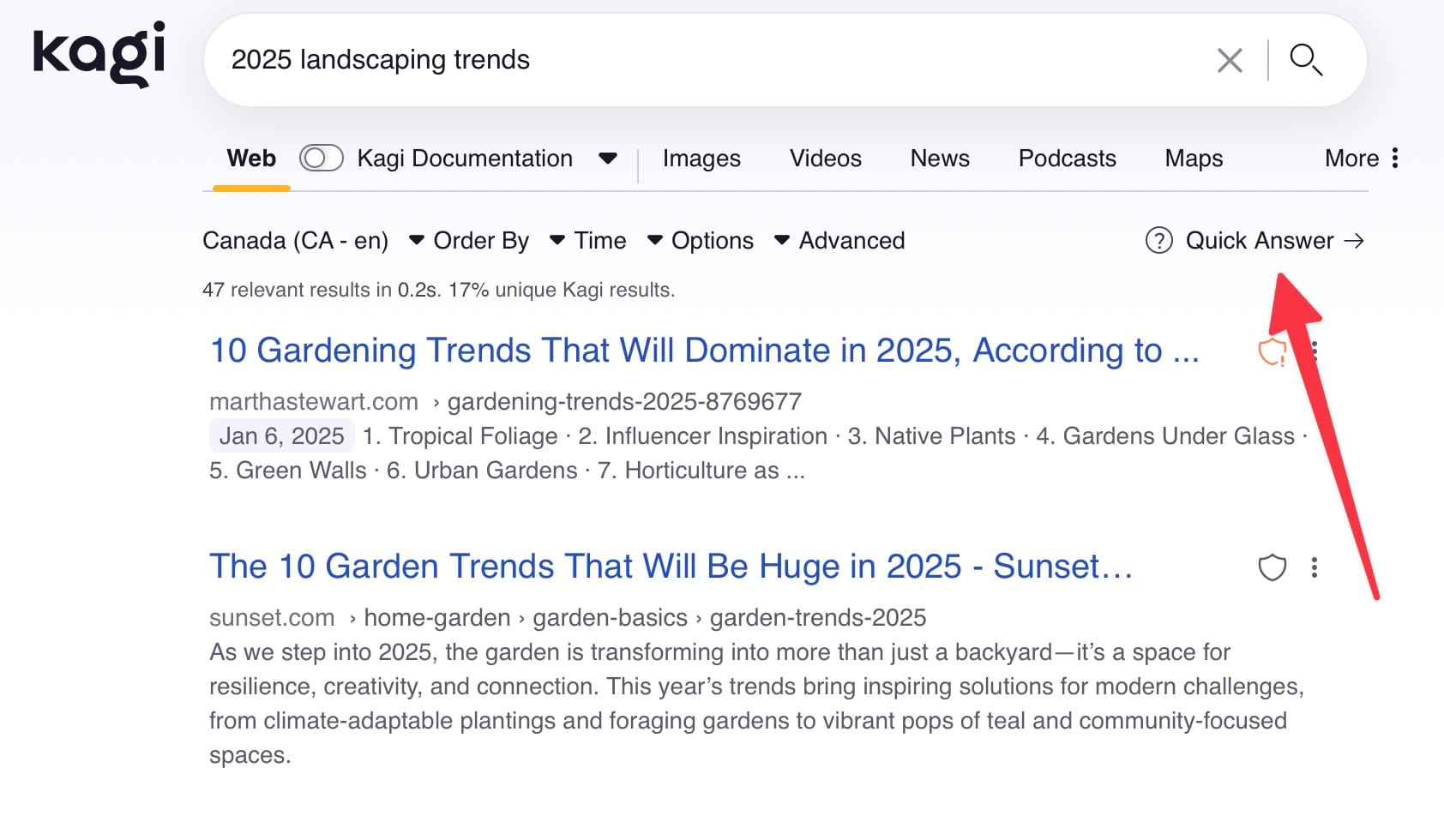
Choosing that provided a nice overview generated by Kagi's AI.
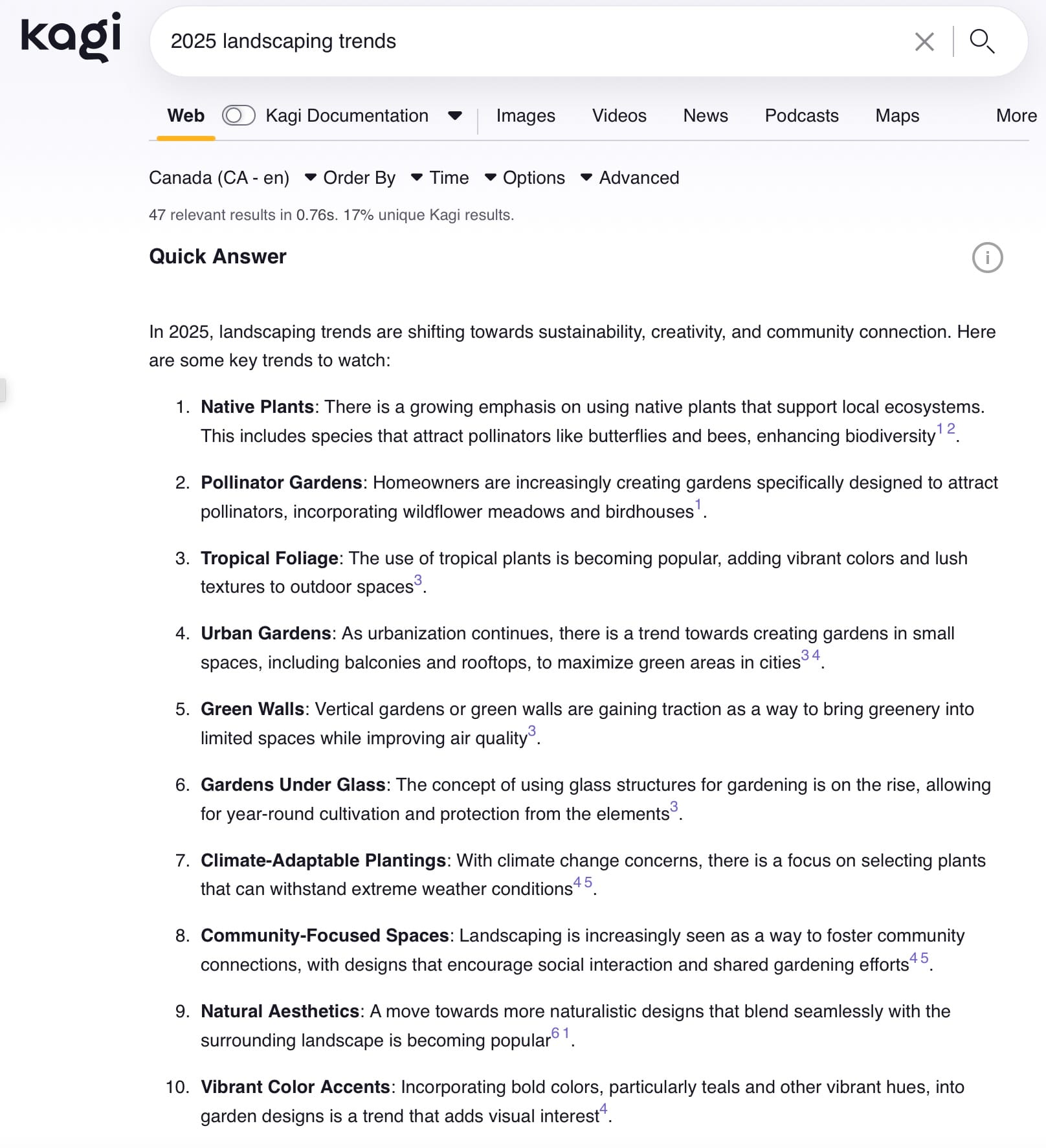
Working with Kagi, I quickly found that I could zero in on the type of information I was searching for. It's a paid search engine - but it seemed so useful that I immediately signed up for it - I'm willing to part with a few dollars for something that will save me a lot of time.
What; 's the point here? Over time, as we become comfortable with the ways by which we might generate knowledge, we should always be aware that there are always new and more powerful ways to do that. Just as we should not become complacent with our business models, we should never become comfortable with the tools that we use.
In that vein, I've also become a HUGE fan of the Google NotebookLLM AI - it's a service that allows you to build private 'notebooks' that contain information that you would like to be able to query using AI. I decided to take the information found in my Kagi search and use that as the foundation for a new 'notebook' - I added all the links I found with my Kagi search to the notebook. I also added to that several YouTube videos that I found online that have to do with landscaping trends; some PDF research reports I discovered; and a massive set of news articles that I pulled out of my paid research service, Dow Jones Factiva.
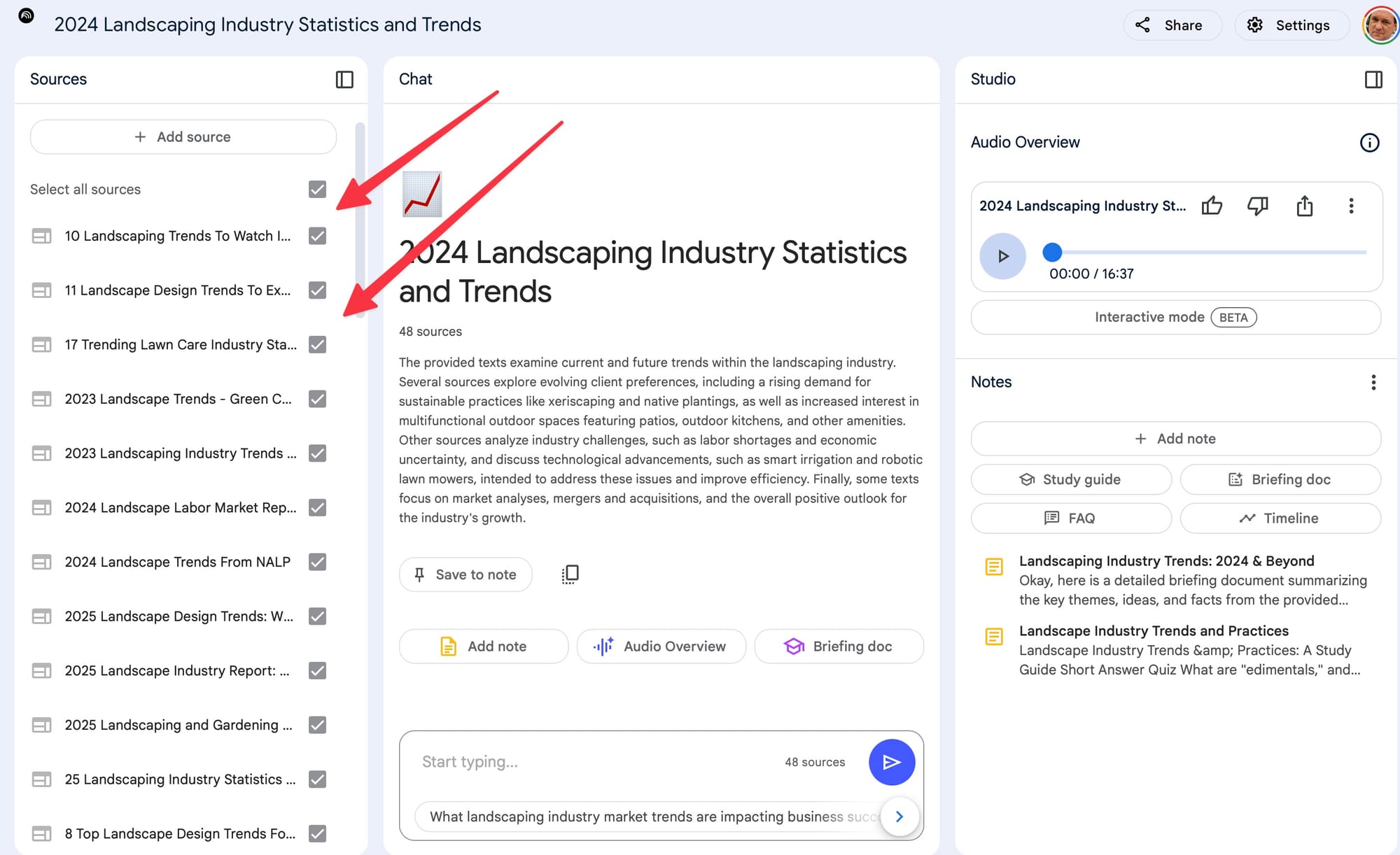
This brought me to the point where I could undertake queries about the vast set of information I've accumulated.
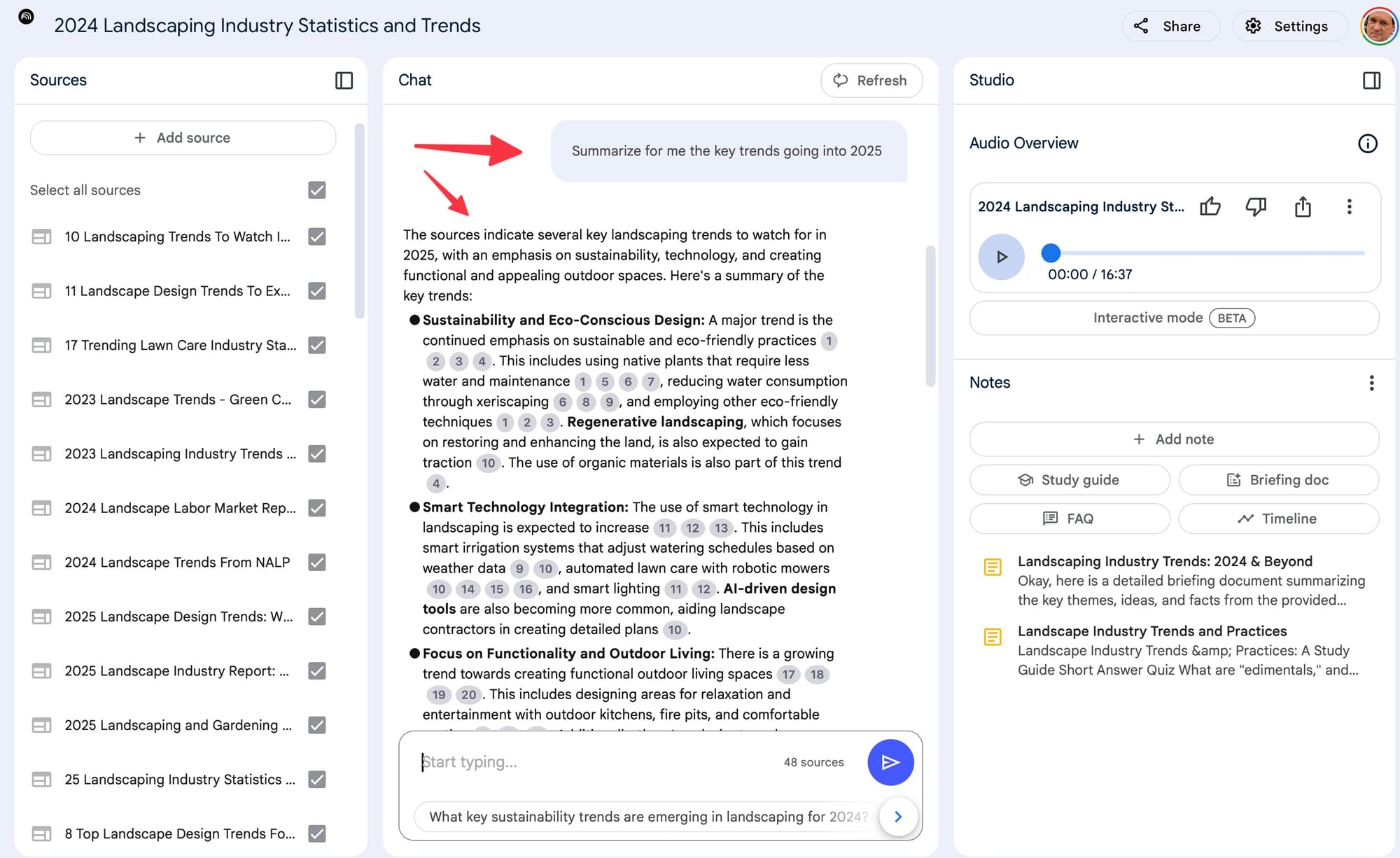
And with that, I've now got some very useful trends insight, both within Kagi and in this particular notebook - and can now go through that as I start to pull together my keynote.
What's the point of all this?
For a long time, I've been preaching the idea of 'just-in-time knowledge' - in a world that involves the explosive growth of information in every industry and carer, our ability to turn information into knowledge is a core skill that we must continually master. This goes to my point that 'learning is what adults will do for a living in the 21st century.'
But what should we do when it becomes increasingly difficult to find the information we need? If Google and other tools become less useful, we need to learn how to find information again.
We need to relearn how to learn - using new tools and technologies and taking advantage of where AI is taking us - because learning is now what we do for a living! We should never stop learning - and we should never stop learning how to learn!
Futurist Jim Carroll has been online since 1982 and continually examines the new tools and technologies that are available.

